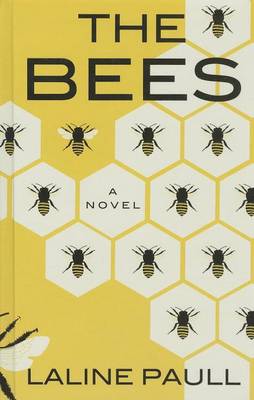Reviewed by inlibrisveritas on
It’s no secret that the dystopian market is somewhat saturated, over saturated in some tropes, so it’s always nice to find that one book that stands out. The Bees stands out without really having to try…I mean it is about bees. We get to see the inner workings of a hive (totally fictional in most aspects) and see some interesting parallels drawn to real world class systems, religious zealotry, and being different. It’s also rare that a summary actually knows what it’s talking about, it actually is fairly suspenseful and incredibly imaginative. Suddenly the world of insects seems a bit more alive, and less…annoying. I loved that it made use of the act that our bee populations are taking a hit from both mysterious illnesses and pesticides, and showed the turmoil that the sickness causes within the hive.
Flora 717 is a worker bee, who is born different. She’s larger, bulkier, and has the ability to speak…something somewhat unheard of for a bee of such low standing. Right away she begins her life as an exception to the rule and soon finds herself not only on sanitation duty but attending to larva, pacifying the drones, and talking wing outside the hive. She’s brave, somewhat bold, and eager to learn far more than she’s supposed to. I wouldn’t necessarily call her a character I could relate to…she is a bee after-all, but I definitely liked her. She has a thirst for knowledge that isn’t welcome in the hive, but she desperately wants the hive to survive and be successful. She’s not out to upset the status quo, it just sort of starting getting all messed up on its own. I also really liked the way each class of worker was different and held a common name. There are Flora, Sage, Thistle, and other various flowers…all of which denote their place in their society. They don’t have names but instead have numbers, and personalities are only for the drones…who if we’re being honest are basically driven by the need to find a mate.
I did have two issues. One, the word choices. I don’t see the word ‘engine’ and thing of any living thing, let alone a bee. The other has to do with how much of a departure from reality there was. I of course expected it to be different reality seeing as we have bees living in a dystopian world with staircases and such…but I did expect to have some real inner workings happening. Flora is technically the only bee in the hive doing what real bees do…working all portions. But even with these two, rather small caveats, it was still a great read!
Reading updates
- Started reading
- 29 January, 2016: Finished reading
- 29 January, 2016: Reviewed
